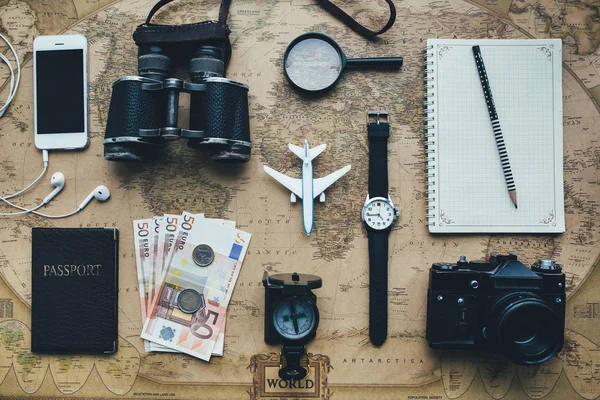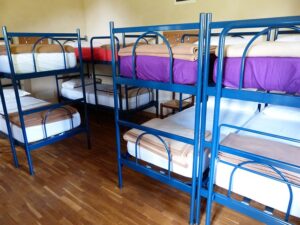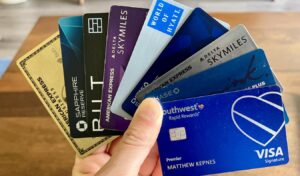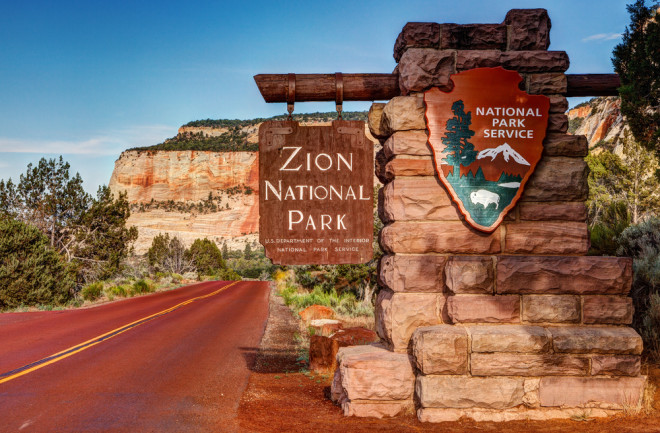
Traveling must be a hobby for passionate and enthusiastic people. It is a transformative experience that allows you to explore new cultures, meet diverse people, and create lasting memories when and where you need them. The misconception that traveling is inherently an expensive approach may resist you from pursuing your wanderlust. However, with careful planning and a strategic approach, you can make it possible. In this blog, we will discuss how to travel on a budget. It will include 10 excellent and helpful tips you can follow to enjoy your trip.
How To Travel On a Budget?
Here are the practical tips and insights that you may follow to maximize adventures while minimizing travel costs.
Also Read: Pack Smart, Travel Green: Discover the Best Eco-Friendly Travel Gear for Sustainable Adventures
Come up With a Budget-Friendly Plan:


It is important to plan your traveling on a budget to make your traveling go smoothly and create everlasting memories. You do not need a tight, hour-by-hour traveling plan, but you should at least have an idea of the destination, city, or country, the route you’ll choose for the trip, and how long your journey will be. To have a budget-friendly plan you need:
- Research and Flexibility – You have to do meticulous research to make sure your traveling goes smoothly on a budget. Thoroughly investigate all aspects of your trip, whether it is destination choices or accommodation options. Be flexible with your travel dates as it gives you an advantage in off-peak seasons and lower prices. Choose your destination carefully and also avoid tourist traps.
- Set a Realistic Budget – Always establish a realistic budget for your adventure. While setting the budget, you must consider transportation, meals, activities, and miscellaneous expenses. It would help avoid financial surprises caused by potential unforeseen costs during your trip.
- Travel Out of Season – Avoid traveling during the school holidays as the travel industry hikes up prices to take advantage of families who have a lone opportunity to travel during these weeks. Research the best time to visit your intended destination and travel before and after these dates. In the travel industry, this is called the shoulder season. Hotels and airlines lower their prices to attract their customers. During these days, the sun does not shine quite as brightly, but you can still have a great adventure.
Also Read: Discover the 10 Best Glamping Destinations In The US | Unleash Your Wanderlust!
Find Affordable Transportation:
The most expensive part of your journey could be the transportation. Try to find affordable and economical transportation. If you are planning for a foreign trip, keep in mind that:
- Book Your Flights Strategically – Monitor airfare prices using online tools or apps and prefer to book your flights during off-peak times. Consider budget airlines or special discounts, be flexible with your traveling dates, and go for connecting flights to save money. Prefer to book return tickets.
- Use Public Transport – If you are traveling within the country, you prefer public transport, which saves a lot. Explore alternative modes of transportation such as buses, trains, or rideshares. All these methods are more economical than flying. Moreover, you can use walking or cycling within destinations as a budget-friendly and healthy option for you.
Choose Affordable Accommodation Options:


The 2nd most crucial consideration while planning a budget-friendly trip must be your accommodation. The cost of accommodation varies depending upon your choice or preference. Here, you should:
- Choose Hostels and Budget Hotels – Hostels are usually considered a backpacker’s haven. You can get affordable dormitory-style accommodations. Budget hotels and guest houses are also excellent options for you. You get the same comfort with an economical price tag.
- Go For Home-Sharing and Rentals – Several platforms like Airbnb and Vrbo offer a variety of budget-friendly accommodation options. You can get private rooms or entire apartments here. Most of these accommodation options come with kitchen facilities that also help you to save on dining expenses.
Eat Well on a Budget:
Refrain from eating away your cash while you are on a budget traveling. After transportation and accommodation, the third most important consideration is your meals. It can sometimes be costly if you visit your destination in its peak season. To resolve this issue:
- Go for Local Markets and Street Food – You can immerse yourself in the local culinary scene by exploring local markets and trying street food. It helps you as a cost-effective way to eat and provides an authentic taste of the destination.
- Cook Your Meals – Cooking your meals would be another option if your accommodation has kitchen facilities. It saves your money and also allows you to experience local grocery stores and markets.
Maximize Your Free and Low-Cost Activities:


Though we have discussed the costly part of your tour, sometimes adventuresome and fun activities can be more expensive. Maximize your free and low-cost activities, and try to avoid high-budget activities.
- Free Attractions – Many destinations offer free attractions. It can include museums, cultural sites, forts, etc. Plan your journey around these free attractions to enjoy maximum without spending much.
- Outdoor Activities – Another option is outdoor activities if your destination is along a mountain range, seaside, or a site with natural scenes. You can go hiking, beachcombing, skiing, or exploring local parts. Nature often provides you with some of the most enriching and cost-free experiences.
Smart Money Management on the Road:
Make intelligent money management while traveling. Avoid such currency exchanges that cost you more than other available methods or routes. Here, you should:


- Avoid Currency Exchange and Go For ATM Withdrawals – When you are traveling internationally, avoid airport currency exchange counters, as these are not suitable for a budget-ruling traveler. Instead, opt for local banks or ATMs for better currency rates. Another critical point is to be mindful of withdrawal fees and try to withdraw large amounts less frequently.
- Opt Travel-Friendly Credit Cards – There are multiple options for travel-friendly credit cards for people who choose economical travel. Opt for credit cards that have minimal foreign transaction fees and travel rewards. You may even get cashback on travel-related expenses from some cards.
Stay Connected Without Breaking the Bank:
When you are already traveling on a budget, it is essential to save as much as you can. It may be vital for you to stay connected even during your trip. Network and data usage is generally much more expensive if you are traveling internationally. You can avoid this by:
- Use Local SIM Cards – Upon arrival at the destination, immediately purchase a local SIM card. It would help you avoid international roaming charges that sometimes cost you a lot if you have to stay connected 24/7. Along with providing affordable data and call options, local SIM cards help you navigate the destination just like a local.
- Find Free Wi-Fi Hotspots – If you can not purchase a local SIM card or have to use the original contact number, try to utilize another option. Take advantage of free Wi-Fi hotspots available in local cafes, restaurants, and public spaces. It will help you stay connected without incurring additional roaming costs.
Health and Safety Considerations Before Traveling:
Health and safety measures must be considered before starting your journey. It not only makes your traveling safe but also gives you mental relaxation during your trip. For this:
- Travel Insurance – Travel insurance is an essential part of your tour you need to invest in. It helps you to cover unforeseen circumstances such as trip cancellations, medical emergencies, or lost belongings. Investing in traveling insurance saves you significantly in the event of an emergency.
- Health Precautions – Researching health recommendations must be an important part of your traveling plan. Search about your destination and take necessary vaccinations and precautions. It prevents unexpected medical expenses and keeps you healthy on the roads.
Cultivating a Budget Traveling Mindset
To make sure you get the most thrilling experiences out of the tour, cultivate a budget traveling mindset. Neither waste away your cash in any way nor get under a burden to purchase anything during your journey. For such a mindset, you need to:


- Prioritize Experience Over Possession – To get more fun out of your budget traveling, shift your focus from material possessions to experiences. Devote your budget to activities and adventures rather than accumulating souvenirs. It will surely help you create lasting memories.
- Pack Smartly and Stay Organized – Before starting your trip, make sure you have packed everything that you may need. By doing so, you do not have to shop while you are away. Always pack lightly and efficiently, as you won’t wear half the clothes you want to take along. It will not only reduce baggage fees but also show you a minimalist lifestyle.
Build Lasting Memories on a Budget:


Budget traveling helps you build long-lasting memories at cheaper rates. To get endless memories and fun, you can:
- Engage With Locals – The best way to make memories with natural scenes at a low budget is to connect with locals. They will help you gain insights into the destinations and discover hidden gems. Locals also provide valuable tips for budget-friendly activities and authentic experiences for you.
- Document Your Journey – Save your travel memories through any possible or your favorite mode. You can document it through photography, journaling, or blogging. Share your experiences with others to foster a sense of community and inspire your fellow budget travelers.
Final Thoughts:
Creating a budget plan and sticking to it helps you economize and get the best experiences out of low-budget traveling. A budget-friendly adventure requires a blend of strategic planning, flexibility, and a willingness to explore beyond the traditional tourist path. To utilize the affordable traveling possible, you need a mindful approach to spending, embracing cheaper alternative options, and immersing yourself in the local culture. Plan wisely, save on flights, choose affordable stays, and savor experiences without breaking the bank. Remember, the true essence of travel lies in the richness of experiences you get and the connections you establish along the way. Start your adventure now!
10 Tips on How To Travel On A Budget: FAQs
Traveling the world doesn’t have to break the bank! Here are some answers to frequently asked questions to help you plan your budget-friendly adventure:
- When is the cheapest time to travel?
Flight and accommodation prices fluctuate depending on the season and tourist flow. Generally, shoulder seasons (spring and fall) tend to be cheaper than peak summer travel times. Consider visiting popular destinations during their off-seasons to score deals. Traveling during weekdays can also be cheaper than weekends. Do some research on your chosen destination to find the most affordable travel window.
- How can I find cheap flights?
There are several ways to snag budget-friendly flights! Be flexible: Consider flying into a smaller airport near your destination or flying on weekdays when prices might be lower. Utilize flight comparison websites like Google Flights, Kayak, or Skyscanner. These platforms allow you to compare prices across different airlines and dates, helping you find the best deals. Sign up for email alerts from budget airlines to be notified of flash sales and special offers.
- What are some affordable accommodation options?
Hotels aren’t your only option! Hostels offer dorm rooms or private rooms at a fraction of the price of a hotel. They’re a great way to meet fellow travelers and save money. Vacation rentals like apartments or guesthouses can be a cost-effective option, especially for longer stays. You can often cook your own meals, which saves on dining expenses. Camping is an adventurous and budget-friendly option for outdoor enthusiasts. Consider using websites like Hostelworld or Vrbo to find deals on vacation rentals.
- How can I save money on food while traveling?
Self-catering is a great way to control your food budget. Opt for accommodations with cooking facilities or pack some light camping cookware if you’re on the go. Visit local markets or grocery stores to stock up on fresh ingredients. Street food is often delicious and affordable in many countries. Limit eating out at restaurants, especially in tourist areas. Consider having one big meal a day and packing snacks for the rest.
- What are some free or low-cost activities to do while traveling?
Many cities offer free walking tours led by knowledgeable locals. These tours are a great way to get oriented and learn about the history and culture of a place. Explore free museums on designated free admission days or visit public parks, gardens, or historical sites. Many destinations offer free concerts, festivals, or cultural events throughout the year. Do some research beforehand to find out what’s happening during your visit.
- How can I save money on transportation?
Public transportation is often the most affordable way to get around a city. Purchase multi-day passes for subways, buses, or trams for unlimited travel during your stay. Consider walking or cycling for shorter distances if you’re feeling adventurous. Renting a bicycle can be a fun and economical way to explore a new place at your own pace. Taxis can be expensive, so use them sparingly or consider ride-sharing apps for cheaper alternatives.
- Do I need to pack light to save money on checked baggage fees?
Absolutely! Many airlines charge hefty fees for checked luggage. Plan your outfits carefully and pack versatile clothing that can be mixed and matched. Opt for lightweight, quick-drying fabrics that you can easily wash by hand. Invest in a carry-on suitcase that meets airline size restrictions to avoid baggage fees altogether.
- Is travel insurance necessary on a budget trip?
Travel insurance can provide peace of mind in case of unexpected events like flight cancellations, medical emergencies, or lost luggage. While not essential, it can save you a significant amount of money if something goes wrong. Carefully consider the potential risks and costs involved with your trip before deciding on travel insurance.
- How can I stay connected without breaking the bank?
Many cafes, restaurants, and libraries offer free Wi-Fi access. You can purchase a local SIM card with a data plan for affordable internet access on the go. Consider using communication apps like WhatsApp or Skype to stay connected with loved ones back home for free over Wi-Fi. Avoid using international roaming charges on your phone, as these can be very expensive.
- What are some tips for budgeting my spending while traveling?
Set a realistic budget for your trip before you leave and track your expenses daily. Prioritize your spending and allocate funds for essential items like accommodation, food, and transportation. Look for free or low-cost activities and attractions. Be mindful of impulse purchases and stick to your budget as much as possible. Consider using budgeting


Pingback: How To Make The Most Of A Day In Zion National Park? A Comprehensive Guide - ForbesPoint